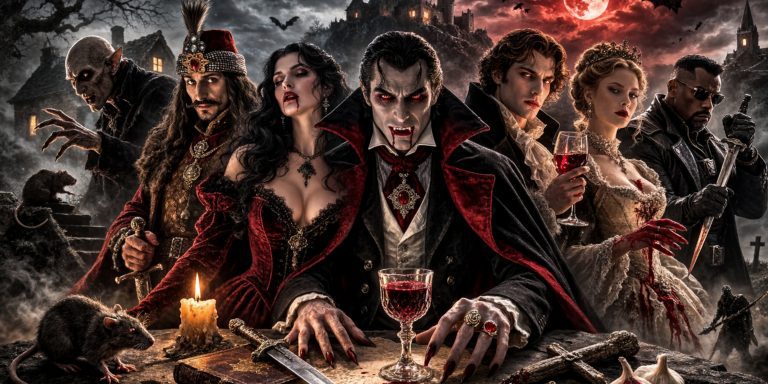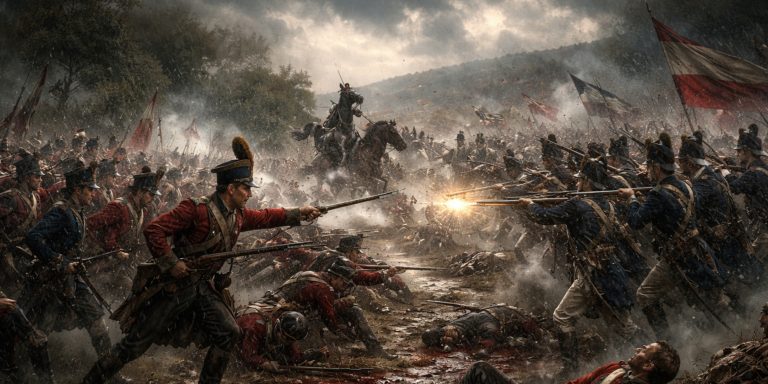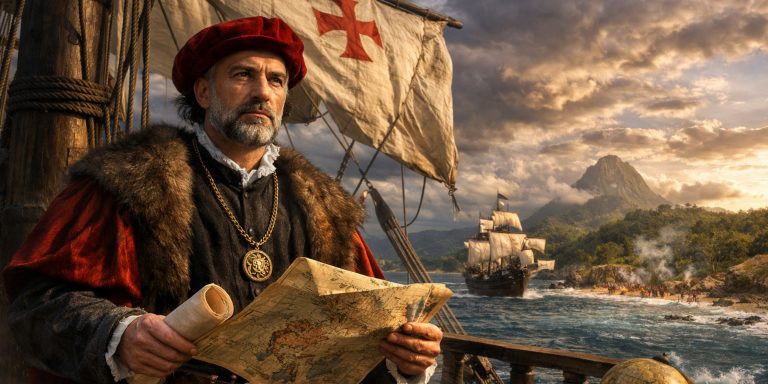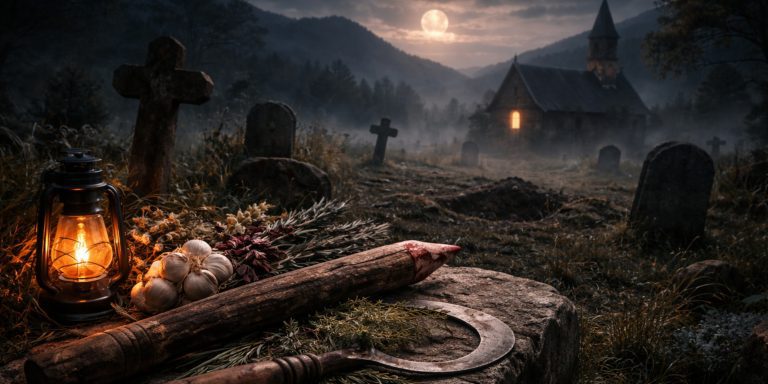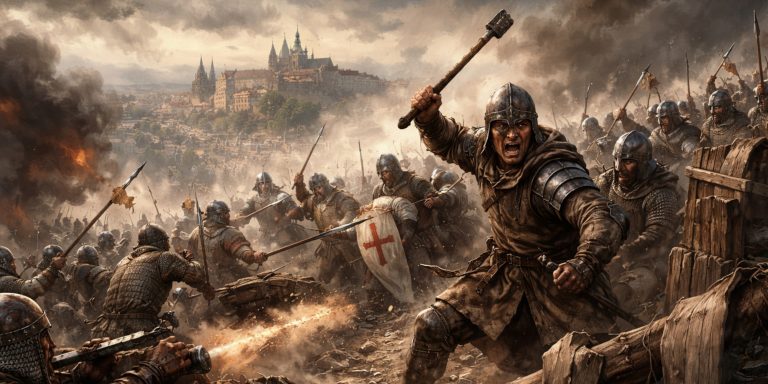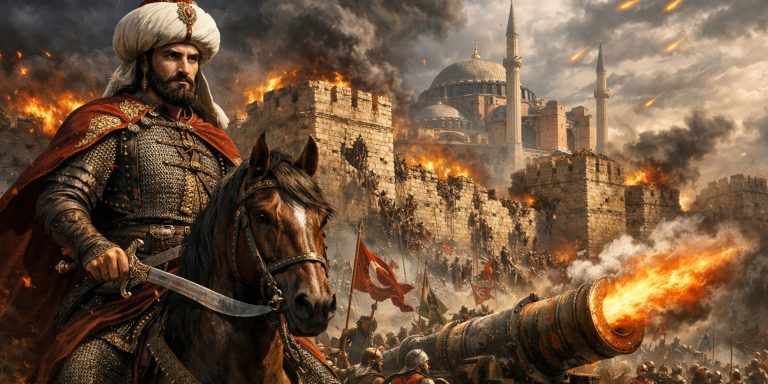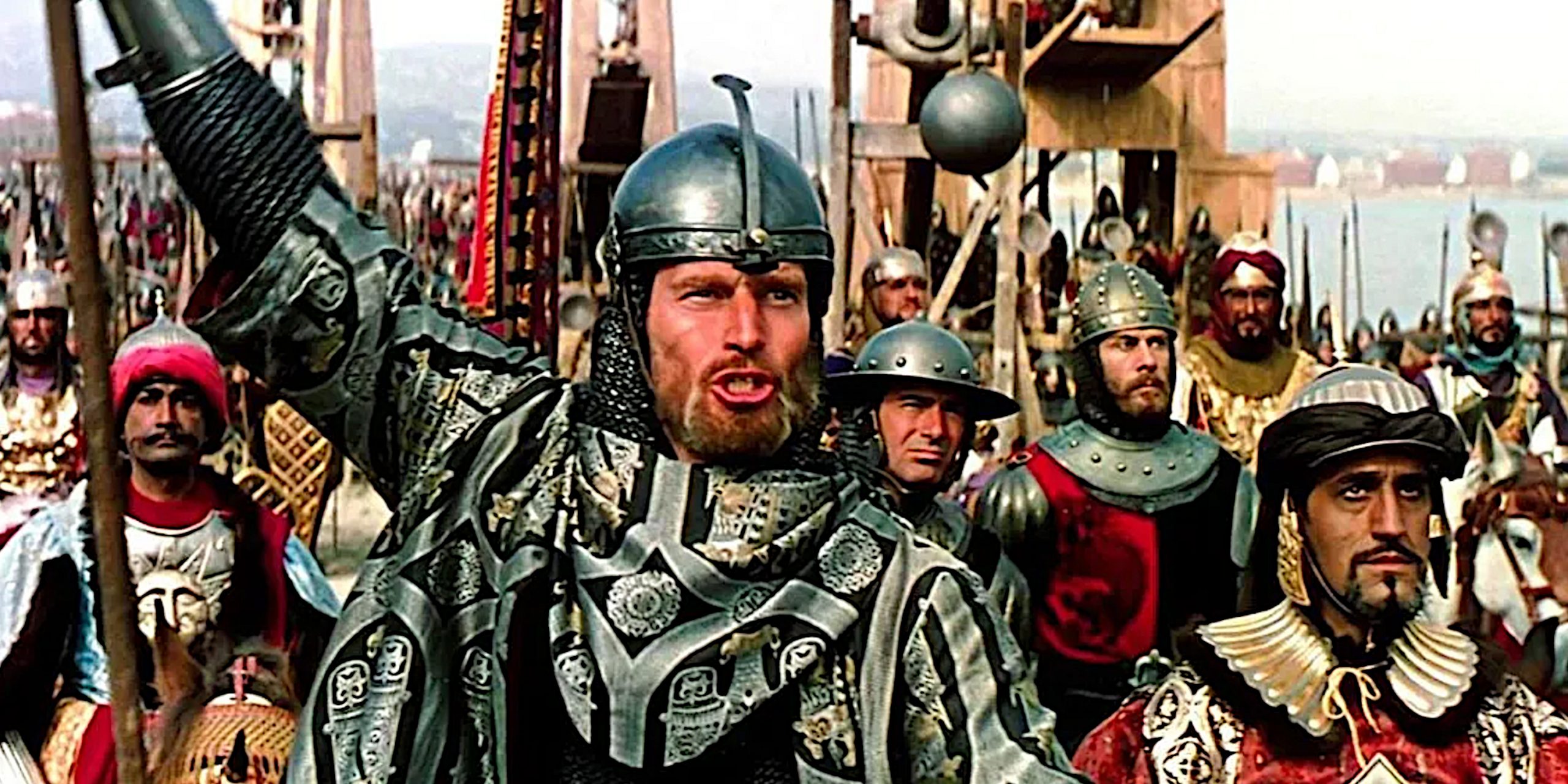
There is something oddly comforting about settling into a film that does not rely on quick cuts or frantic pacing. El Cid takes its time, and to be honest, that is part of its charm. Charlton Heston strides across the screen with the sort of confidence that makes you question your own posture, while Sophia Loren gives the story enough emotional weight to stop it turning into a medieval flex-off. Watching it now feels like opening a very large, slightly dusty book that still has a good story to tell.
What El Cid Is About
The film follows Rodrigo Díaz de Vivar, the Castilian noble who became a legendary figure in the Reconquista. The story blends loyalty, faith, ambition and messy relationships with kings who behave like they need better advisors. Rodrigo stands out because he tries to rise above the chaos, even when the political landscape shifts every ten minutes.
You watch him win battles, wrestle with honour and navigate a romance that refuses to stay simple. The film gives everything a sense of weight, as if every decision Rodrigo makes carries half of Spain with it.
The Cast And Performances
Charlton Heston plays Rodrigo with that signature heroic stiffness. He moves like a man who has never once questioned himself, even when he definitely should. It works though. His version of El Cid feels like someone carved out of a cathedral wall and told to go act.
Sophia Loren’s Chimene is equally striking. There is a sense that she is far more aware of what is going on than half the court put together. The tension between her love for Rodrigo and her loyalty to her family gives the story a pulse that keeps the film from drifting into pure macho glory.
The supporting cast round out the world with plenty of court intrigue, political spite and the occasional moment where you can almost hear the actors thinking about how heavy the costumes are.
Historical Accuracy, Or Something Close Enough
El Cid is not trying to be a documentary. It borrows from the legend as much as the history, giving us a Rodrigo who is cleaner, nobler and considerably less complicated than the man scholars enjoy debating about.
Still, the film captures the atmosphere of eleventh century Iberia quite well. You get a sense of the mixed cultures, shifting alliances and regional tensions. It may polish the edges, but the core themes remain grounded in the era.
Standout Scenes
Several sequences stay with you long after the credits.
The duel early in the film sets the tone, presenting Rodrigo as someone who tries to resolve conflict without slipping into needless brutality. The siege at Valencia gives the story its grand sweep, filling the screen with armies, banners and a whole lot of sand. Nothing quite matches the final ride though. Even if you know the legend, seeing it unfold with Miklós Rózsa’s score swelling in the background hits much harder than expected.
What Makes El Cid Worth Watching Today
Modern audiences are used to tighter pacing and sharper dialogue, yet El Cid still manages to pull you in. The scale is enormous. The drama feels mythic. The music alone makes your living room feel like it has higher ceilings.
It also has a sincerity that modern epics often avoid. There is no hint of self awareness. It plays everything straight, which can be refreshing when you are used to films winking at you every few minutes.
If you enjoy historical films, this one gives you a solid foundation for understanding how classic Hollywood approached medieval storytelling. If you just want to see Charlton Heston look intensely at the horizon, you will have plenty to work with.
The Seven Swords Takeaway:
El Cid is a relic from a filmmaking era that loved big sets, bold colours and heroes who spend more time thinking about duty than their own survival. Watching it now feels strangely energising. It reminds you that cinema does not always need to sprint. Sometimes it marches, and sometimes it rides out with a whole army behind it.
If you have ever wondered why your parents or grandparents speak so highly of old epics, this film gives you the answer.
Watch the Trailer:

